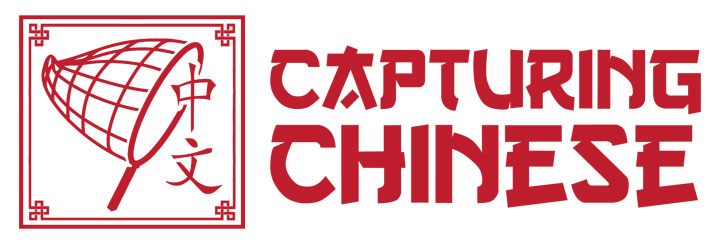Chinese Characters: A Brief History
I'm working on a magazine article and here is a small excerpt of what I have so far. If you have any comments please let me know using the comments at the bottom of the post. Cheers. Chinese characters: a brief history Whatever your own personal reasons for learning the language, I suggest you make your ultimate goal to not just be able to speak the language but also to read and write. Many classmates of mine have done their best to learn Chinese without having to memorize all those pesky Chinese characters. They insisted that the characters were an ancient accident of history and unnecessary in learning to speak the language. Many discussion forums online discuss the need for Chinese to adopt a phonetic language structure as the Koreans and Vietnamese have one. If the Koreans and Vietnamese who used to use Chinese characters can change to a phonetic system, then surely why can’t the Chinese. This discussion was widely debated in China after the overthrow of the Qing dynasty when illiteracy in China was holding back modernization. During that time some scholars in China even insisted that China adopt the world language of Esperanto as a national second language to overcome the problem of dialects within China and to facilitate communication with the outside world. Esperanto was a proposal by L. L. Zamenhof in 1887. Zamenhof was a Jewish doctor living in Poland under Russian occupation. Russians, Jews, Germans and Poles all had different languages and Zamenhof saw this lack of ability to communicate as the main source of tension. Esperanto was meant to solve these problems as being the world’s lengua franca. Some scholars in China saw the simple and phonetic language structure as the solution to illiteracy and the problem of so many dialects in China. The Esperanto movement made traction along the intellectuals in China, but ended in 1919 with the signing of the Versaille’s Treaty. The Versaille’s Treaty was the peace treaty ending World War I. The source of the China’s change of thought was the transfer of German concessions in Shandong to Japan instead of returning sovereignty to China. China had even sent 140,000 Chinese to France[i] to help the Allied powers. The Chinese viewed the signing of this treaty as a stab in the back by the Western powers resulting in the dropping of many Western idea including that of Esperanto. In one of Lu Xun’s short stories, A Comedy of Ducks (鸭的戏剧), he actually writes a story about a visitor from Russia who was a poet fluent in Esperanto. While this short story was published in 1922, Esperanto had already effectively lost the language debate in China. However, Chinese did become much easier. Pioneering author, Lu Xun (鲁迅), began to write Chinese novels and stories using vernacular Chinese so that everyone could understand. This form of writing is called baihuawen (白话文) and contrasts sharply with classical Chinese. The change from classical Chinese to baihuawen can be viewed as the Catholic Church moving from Latin to the vernacular language. Traditionalist were infuriated, but now more people could read. The elite were now not the only ones who could read. With the growing popularity of the vernacular writings, the Chinese also began using Western punctuation. Traditional Chinese literature was almost completely devoid of any punctuation. For an example of classical Chinese you can see a sample of it in the introduction of Lu Xun’s A Madman’s Diary (狂人日记). During the writing of Capturing Chinese I consulted quite a few native Chinese speakers on the meaning of these two introductory paragraphs. They all had their own opinion of what the meaning was and they often contradicted each other. For those complaining about learning Chinese, imagine having to learn un-punctuated, unsimplified, classical Chinese. So for all students of Chinese wishing for China to abolish the writing system don’t hold your breath too long. This pipe dream disappeared with the signing of the Treaty of Versailles in 1919. Also remember, Chinese has already been simplified in two ways. Classical Chinese is no longer a necessity and traditional characters are no longer used so much in mainland China. You might find the traditional characters at karaoke parlors since a lot of popular music comes from Taiwan and Hong Kong and of course you will still need to learn traditional characters if you plan to spend time in Hong Kong and Taiwan. But for those hoping for the language to get simpler, don’t plan on it. If anything, Chinese will only get more complicated in the future. Pan Qinglin, a representative of Chinese People’s Political Consultative Conference (CPPCC), submitted a proposal at this year’s CPPCC meeting suggesting that China revert back to traditional characters. One of his arguments is that the move to simplified characters was hastily performed and resulted in many characters losing their meanings. I agree. For instance the simplified character for love is missing a critical element of love, the heart radical (心). See 爱 versus 愛. Many Taiwanese and Hong Kongers have been emphasizing this point for quite some time. The second reason to contemplate a move back to traditional characters, is that the reason for simplifying in the first place is no longer valid. With computer input, it doesn’t matter whether you write traditional or simplified. Computers take the hard part out of writing the characters and therefore traditional characters could be used instead. Whether China actually accepts this proposal is another story altogether, but for the time being I suggest you don’t put off learning the characters.
[i] Luo, Jing. [2004] (2004). Over a Cup of Tea: An Introduction to Chinese Life and Culture. University Press of America. ISBN 0761829377
